Mindfulness and Aging
Solutions to The Problem That Has No Name
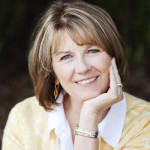 Here are, as promised, some tools that boomers are using to help keep their spirits afloat as they navigate the transition from their 60’s into their 70’s. They are simple and we mostly know about them. Putting them into regular practice is the key towards feeling better.
Here are, as promised, some tools that boomers are using to help keep their spirits afloat as they navigate the transition from their 60’s into their 70’s. They are simple and we mostly know about them. Putting them into regular practice is the key towards feeling better.
- Mindfulness, contemplation and loving kindness practices
Sitting still and paying attention. Daily. That is the gist of mindfulness practice. It doesn’t have to be for a set length of time. One minute is fine. What tends to happen is that if you can stop the momentum treadmill of everyday life even for a moment by stopping, sitting up with good posture and paying attention to your breath for one minute, you might find yourself sitting for more than one minute. The hardest thing is simply to make the effort to stop. This can be pulling over on the side of the road, in a parking lot, in your office, at your home, wherever. The word for mindfulness in an Japanese is also the word for heartfulness. This is where loving kindness practice comes in. Sitting quietly with awake presence includes paying attention to our feelings and not judging them. Letting them be, and pass by. This is a big long topic but keeping it simple, it’s about being kind towards yourself before you can begin to be truly kind to others. Repeating the simple Metta Loving Kindness mantras can be a place to start: “May I be safe, May I be happy, May I be healthy, May my heart be filled with loving kindess.”
- Exercise – aerobic; Yoga
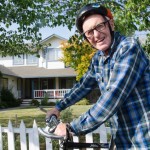 Exercise is key, we all know that. Again, even a few minutes can make a big difference both in physical health and in mental health too. A short walk around the block. A few minutes on a stationary bike. Dancing to some music on the radio. A Youtube gentle yoga video to help build muscle but also to stretch your muscles out. Most people find the most challenging part of this is getting started. So, starting by just committing to 5 or 10 minutes a day is a great way to get yourself going. Don’t start with too much of a commitment so that you give up!
Exercise is key, we all know that. Again, even a few minutes can make a big difference both in physical health and in mental health too. A short walk around the block. A few minutes on a stationary bike. Dancing to some music on the radio. A Youtube gentle yoga video to help build muscle but also to stretch your muscles out. Most people find the most challenging part of this is getting started. So, starting by just committing to 5 or 10 minutes a day is a great way to get yourself going. Don’t start with too much of a commitment so that you give up!
- Understanding the link between nutrition and mental health
More and more research is coming out about the links between good nutrition and good mental health. We are what we eat, it’s true. So many of the neurotransmitters that govern our moods are produced in the “gut”. Paying attention to what we eat – backing down the processed carbs and the white sugar is paramount to good health. Complex carbs, protein, vegetables and fruit. Simple. Fortunately we live in a day and age when good quality organic foods are available. Counting calories is an important thing to watch too. You can eat good quality foods but eat too much of them. Paying attention to your weight and aiming for a strong body are things many of our grandparents and parents knew. We need to pay attention to them too as we get older.
- Giving back to your community; volunteering
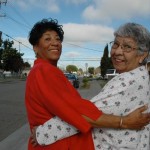 It’s not a surprise that helping others makes us feel good. People that survey volunteers at various causes always say that people report that they feel better than the people they help! As we get older and probably are retiring when we can :), people sometimes feel like now what? Traveling and doing hobbies and socializing are great – but so is having purpose and helping out our friends, family and community.
It’s not a surprise that helping others makes us feel good. People that survey volunteers at various causes always say that people report that they feel better than the people they help! As we get older and probably are retiring when we can :), people sometimes feel like now what? Traveling and doing hobbies and socializing are great – but so is having purpose and helping out our friends, family and community.
- Consciousness raising support groups
Since we are talking about a “problem that has no name”, being in a supportive peer group where we can compare notes, commiserate, exchange ideas, and yes, laugh!, can be sooo healing. There are meditation groups where people have discussions afterwards, support groups for caregivers, church/temple groups, groups that have to do with aging such as AgeSong in the Bay Area, and more. Many agencies that serve older people offer groups of various kinds, as do community centers. You might have to try one or two before you find one that feels just right.
- Nature – renewing a commitment to spending time outdoors
 There is a term in Japanese that translates as “forest bathing”. It turns out that trees release not only oxygen but also chemicals that contribute to the overall health of the forest. And, it turns out, these chemicals are very good for us humans! So, try to get out in nature, in the forest, or on the mountain, or by the ocean or river, or in the park. Anywhere where you can “forest bath” – meaning to simply stop and immerse yourself in the beauty of natural surroundings.
There is a term in Japanese that translates as “forest bathing”. It turns out that trees release not only oxygen but also chemicals that contribute to the overall health of the forest. And, it turns out, these chemicals are very good for us humans! So, try to get out in nature, in the forest, or on the mountain, or by the ocean or river, or in the park. Anywhere where you can “forest bath” – meaning to simply stop and immerse yourself in the beauty of natural surroundings.
- Counseling
Going to see a therapist who understands the journey of being in middle age and older years can be so healing and supportive. Any therapist might be helpful but particularly someone who understands that the challenges and opportunities and transitions we encounter in this adventure of growing older – can be very helpful in terms of you being able to understand what is common and normal in this part of your life. Understanding that you are not alone – you’re not doing something wrong most of the time – can feel like an unburdening. Yes you still have to figure things out and there are challenges. But the self-criticism, self-blame, and shaming can be *greatly* reduced with the power of a little education about what are called the “developmental tasks” of this age and the common landmarks of this territory. Plus, of course, learning about the many ways people like you are successfully dealing with a variety of issues is a huge help.
- Using the Arts to reconnect with Self
Re-exploring one’s love of the Arts can be so healing at this time in your life. Reading, writing, journaling, reading and writing poetry, playing a beloved instrument, learning how to play an instrument for the first time, taking a  class, learning to dance, going to art exhibits, singing in a group, going to concerts, enjoying doing crafts, arranging flowers… – all of these feed the soul and, now that you may have more time on your hands, are a good way to relax and keep your mind engaged in beauty rather than on problems. Winston Churchill, for instance, suffered greatly from depression – what he called the Black Dog. Painting, for him, was a tremendously helpful therapy.
class, learning to dance, going to art exhibits, singing in a group, going to concerts, enjoying doing crafts, arranging flowers… – all of these feed the soul and, now that you may have more time on your hands, are a good way to relax and keep your mind engaged in beauty rather than on problems. Winston Churchill, for instance, suffered greatly from depression – what he called the Black Dog. Painting, for him, was a tremendously helpful therapy.
Please feel free to email me if you have questions or comment below.
Bringing Balance into Our Lives as We Grow Older
 As we get older, we are exposed to increasing loss and stressors. These can be deaths of loved ones and family members. Sometimes it’s illness, it may be chronic pain. Or watching people we care about encounter difficulties and running into more problems ourselves.
As we get older, we are exposed to increasing loss and stressors. These can be deaths of loved ones and family members. Sometimes it’s illness, it may be chronic pain. Or watching people we care about encounter difficulties and running into more problems ourselves.
Joan Erikson, the renowned psychologist and wife of psychologist Eric Erikson, talked about needing to let go of things as we climb up the hill of getting older. Old habits, old concerns, old worries, old ways of being – we have to start looking at those and discarding those that have become too heavy to continue to carry. She said:
“Everybody says it’s a good idea to lighten your load. It’s like walking up a hill. And then you realize that the load that you’re carrying is not worth the trouble, it’s not worth the strength that it takes to keep it with you. And you begin to just gladly drop this bit here and this bit here and be freer to get up that steep hill.”
This “purging” effect as one of my therapist friends calls it, involves letting go of a range of things. It can be not eating as much and therefore extra weight. It can be possessions which we have accumulated and carried around with us in our homes. Those possessions which seem to multiply by themselves and we look around finding ourselves surrounded by too many things. Time to let go!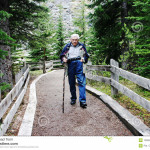
Sometimes it’s relationships we are looking at and letting go of. Old friends who were wonderful in one season of our lives may not feel nurturing or right anymore. This is not a blame and shame process. This is normal. Friends, colleagues and associates come and go. “Culling” and honing and winnowing are all practical terms having to do with earth and sometimes farming. They are good metaphors for how we are gardening through our lives.
To extend the metaphor, plants need room to grow and thrive. If they, or we, are too crowded, our growth is stymied. How much room we need as individual humans is a very personal journey and decision. It may differ at various times of our lives because numbers of relationships, too, have seasons.
A coping mechanism mentioned by many mental health practitioners and mindfulness teachers is bringing more of our attention to positive things in our lives. Big things, but also the small little day to day, hour to hour, minute to minute things that delight us. And by delight, I mean that bring light into our hearts. It might the sight of a beloved child, pet, the smell of a sweet sweet rose, the taste of something delicious, the feel of the warm sun on our face, the rays of sunshine filtering down through tall trees, the sound of the ocean, etc.
Those enjoyments can help bring us balance in and of themselves, and *especially* so when we pause and savor them for more than a second. In fact, brain research has shown that it takes the brain at least *10 seconds* to take a momentary experience and be able to register it into memory. 20 or 30 seconds is better.
So, for starters, a simple thing to do to move towards balance is to take the time to notice positive experiences in our lives, note them with all of our senses where possible, and stay with them for a few seconds. A regular practice of this will attune our brain to noticing more of these experiences and help bring balance into our perspectives and lives. Simple and powerful at the same time.
A New Year & A New Perspective
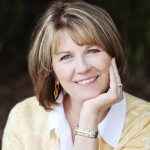 A New Year & A New Perspective
A New Year & A New Perspective
Dear friends and colleagues in the healing arts,
2015 presented me with some interesting challenges. After the death of my beloved mother and the near death and continued illness of my husband, I wondered how we healers can continue to serve our patients when we ourselves are in the midst of tough times. Maybe some of you have come up against this question too.
What I discovered is, as songwriter Leonard Cohen writes, “The birds they sang at the break of day. Start again I heard them say. Don’t dwell on what has passed away or what is yet to be. Ring the bells that still can ring. Forget your perfect offering. There is a crack in everything. That’s how the light gets in.”
It’s this last part that has surprised me. What an unexpected gift is the grace and light that can emerge out of adversity. What I am learned continually deepens both my work and my home life.
As we get older, we find ourselves adding to our toolkit of life skills. Mindfulness tools have reentered my life and work in a big way. And so has my intention to reach a much wider audience through teaching nationally about conscious aging. The need and demand for navigation help is so great as the boomer generation enters the unfamiliar terrain of older life.
If you have friends, family or patients in these populations below who you think I might be able to help or if you have questions yourself, please feel free to reach out anytime:
- People in their 50’s, 60’s and 70’s waking up to their own sense of aging – often through illness or other changes in themselves or their loved ones. They seek answers, solutions, and guidance.
- Adult children of aging parents who feel confounded and frustrated about how to best help their parents through a myriad of difficult circumstances. They are the sandwich generation with aging parents, children and often grandchildren too.
- Families where adult children and aging parents need to and want to come to some new understandings and find a closeness now to the extent they can while they can still can.
- People in their 80’s and early 90’s who are facing their last years with all that that entails – memories, regrets, fears, peace and contemplation – all healthy parts of this stage of life. Having a genuinely caring nonjudgmental skilled listener is so valuable.
You might already know that there are very few psychotherapists in Marin who have advance training in gerontology. With my expertise in the fields of aging, communication, business, medicine and psychology, I am uniquely qualified to help your midlife and older patients, friends and family.
My offices are in Mill Valley and San Anselmo. Telephone appointments are also available for people who do not live close by. I provide a free initial phone consultation. And if I can’t help, I can often steer people to other beneficial resources.
With warm wishes for a peaceful 2016,
Nancy Rhine, MS, LMFT, CPG
415-378-6577
nrhine@gmail.com